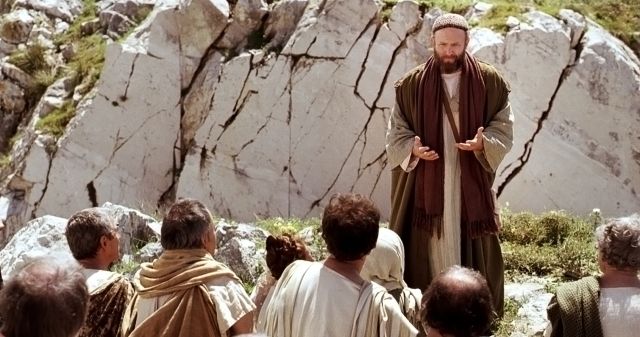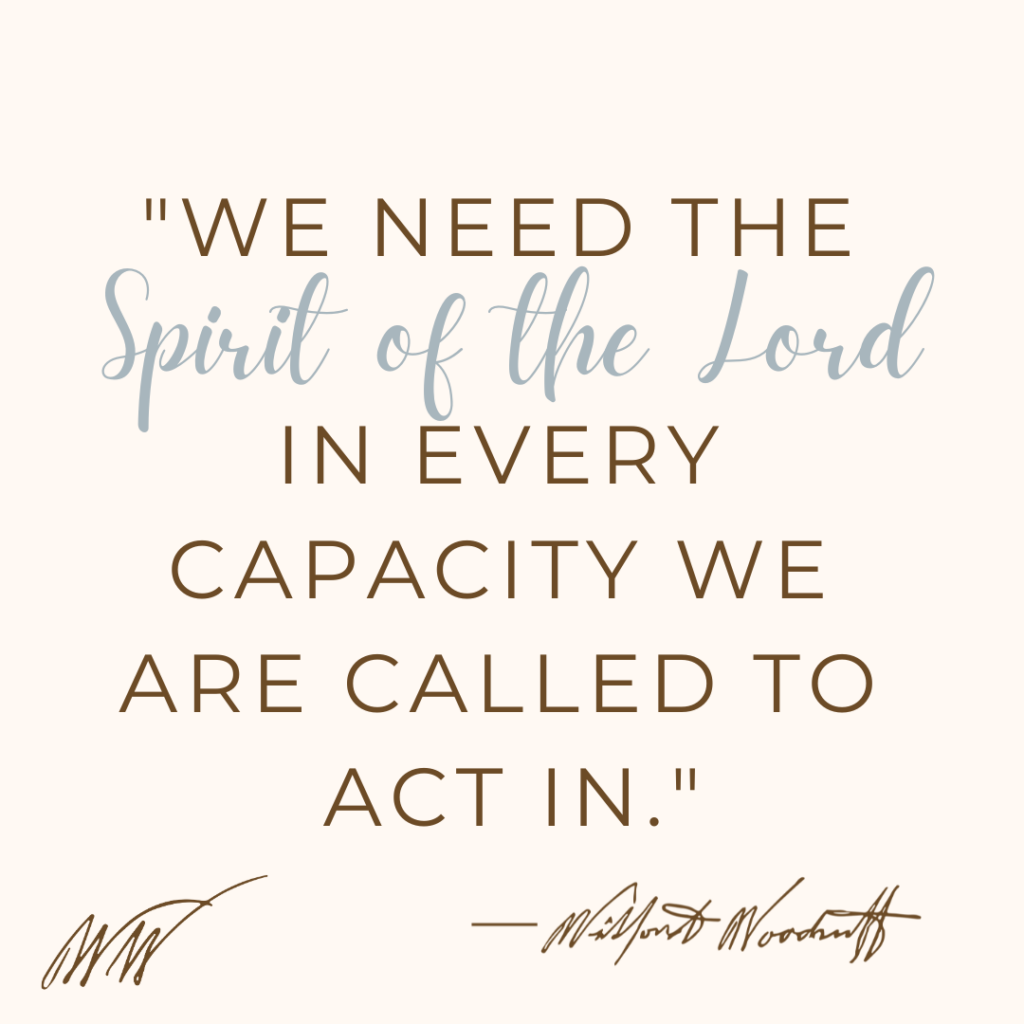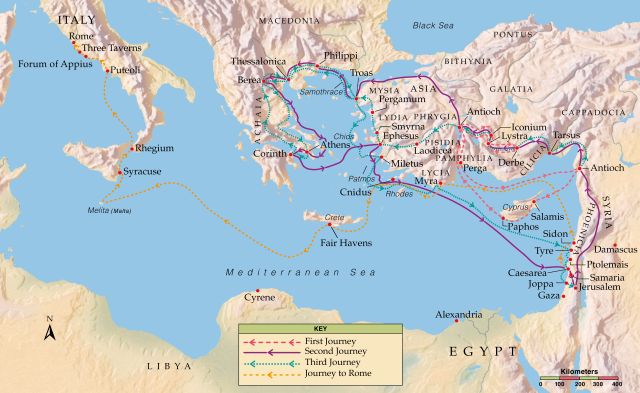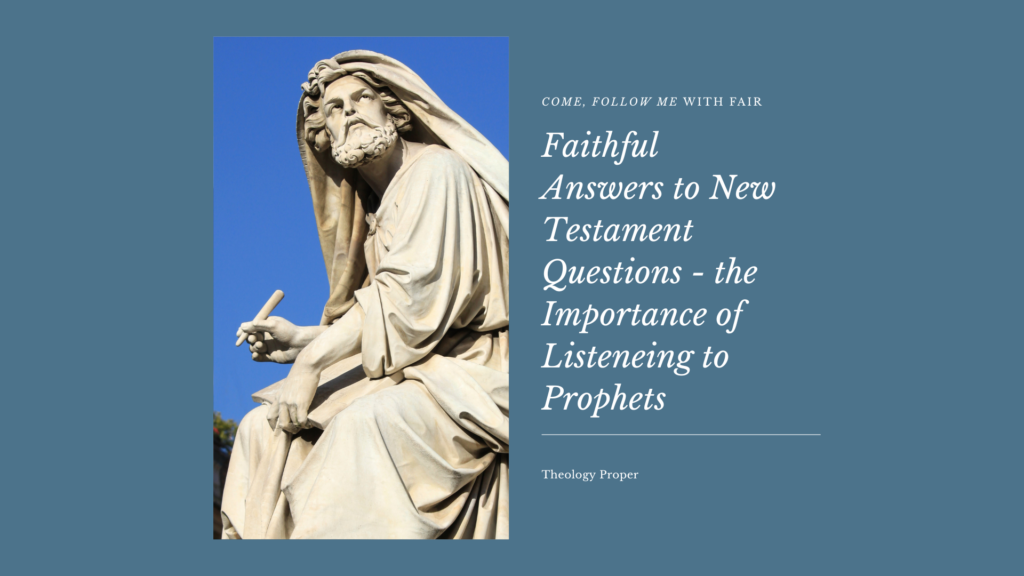"What Wilt Thou Have Me to Do?"
July 24–30

FAIR Faithful Resources for Come, Follow Me 2023 July 24–30. Acts 16–21: “The Lord Had Called Us for to Preach the Gospel.” Find answers to difficult questions to help you in your learning and teaching. Here is a collection of reliable resources to supplement your study of Acts 16–21. FAIR Resources link to relevant questions which have been answered on the FAIR website. Under Church Resources you’ll find links to the different Come, Follow Me manuals, as well as other helpful links as applicable. Other Resources link to resources outside of FAIR that are trustworthy and helpful.

Main points to ponder
The lesson points out that Paul found the people of Athens to have many different religious opinions and views. They worshiped many different gods, one of which was “the unknown God.” (Acts 17:23) In Acts 17:29, Paul teaches the people that they are “the offspring of God.” (‘ofspring’ is Old English for a person’s child or children) Consider:
- What does it mean to you personally to be the offspring of God?
- How is being a child of God different than being one of His creations?
- How does this understanding influence how you see yourself and those around you?
- How do agency and personal accountability factor in differently as a child of God than as a creation of God?
The lesson invites us to imagine what we might have said and thought had we stood beside Paul while he testified to the ancient Greeks.
- What is your personal witness about our Heavenly Father?
- Do you know someone who could benefit from hearing your testimony?

Faithful Resources on the FAIR website:
- Is Baptism Essential for Salvation?
- Question: Was Paul a “real” apostle, with authority over the Church like the original Twelve?
- Question: Were the early apostles married?
- Question: Was the Apostle Paul Married?
- Question: Does the Biblical reference by Paul to “apostles and prophets” refer to Church offices?
Resources on the Church website:
Come, Follow Me—For Individuals and Families
Come, Follow Me—For Sunday School
We Are the Offspring of God (Acts 17)
New Testament Videos: Acts of the Apostles
Paul’s Metaphors of Salvation in Their Ancient Contexts, Jason R. Combs, August 2023 Liahona
Faithful Resources from other reliable websites:
- Come, Follow Me Study and Teaching Helps — Lesson 31: July 24–30, Jonn Claybaugh
- The New Testament in Context: Come, Follow Me Lesson 31
- Audio Roundtable: Come, Follow Me New Testament Lesson 29
- Paul, the Prison Guard and the Two Great Commandments, Hales Swift
- Scripture Roundtable: New Testament Gospel Doctrine Lesson 31, “And So Were the Churches Established in the Faith”
- Scripture Roundtable: New Testament Gospel Doctrine Lesson 32, “Live in the Spirit”
- The Endings of Mark and Revelation, Kent P. Jackson
- Paul’s Witness to the Historical Integrity of the Gospels, Frank F. Judd Jr.
- The unique way that the Book of Mormon is a symbol of Jesus Christ’s Resurrection, Book of Mormon Central
- Come Follow Me – Matthew 28; Mark 16; Luke 24; John 20-21, Book of Mormon Central Archive
- Why Does Part of the Long Ending of Mark Show Up in the Book of Mormon?, Book of Mormon Central
- Our Savior in the Gospels: The Resurrection
- Our Savior in the Gospels: “What Think Ye of Christ?”
- Come Follow Me 2019: Acts 16–21, Book of Mormon Central
- Come Follow Me Acts 16-21 (July 22-28), Don’t Miss This
- Come Follow Me Podcast #29 “The Lord Had Called Us for to Preach the Gospel” Acts 16-21, Meridian Magazine
- Come, Follow Me for Individuals and Families: Acts 16-21, “The Lord Had Called Us for to Preach the Gospel”, Meridian Magazine
- Come, Follow Me for Sunday School: Acts 16-21, “The Lord Had Called Us for to Preach the Gospel”, Meridian Magazine
- Acts 16—21, BYU Studies
- How Imprisonment, Persecution Helped Paul Move Christ’s Message Forward, LDS Living
- “Come Follow Me” FHE: Our Divine Identity, LDS Living
Covenant, Law, Grace, Works, and Faith: Understanding the Contexts of Scripture (updated) – Ben Spackman
Dig Deeper
- General Conference Talks
- Elder Dieter F. Uchtdorf, Missionary Work: Sharing What Is in Your Heart
- Elder Loren C. Dunn, The Spirit Giveth Life
- Elder Jeffrey R. Holland, The Grandeur of God
- General Conference Snippets
- Elder Dallin H. Oaks: Culture Of Christ, Acts 15: 1-29
- Elder M. Russell Ballard: Others Beliefs, Acts 21: 16-26
- Elder David A. Bednar: Proclaim The Gospel, Acts 16: 9-15
- BYU Devotionals
- Elder Quentin L. Cook: Be a Missionary All Your Life | Quentin L. Cook | BYU Speeches
- Other
- Elder Quentin L. Cook, Looking beyond the Mark
Lesson Devotional



Karen Dupaix was born in Portland, Oregon, and currently lives with her husband and family in Saratoga Springs, Utah. She enjoys gardening, sewing, and serving as a temple worker with her husband, Paul. They are the parents of seven children and have seven grandchildren.

Lesson devotionals are provided by the Wilford Woodruff Papers Foundation. Its mission is to digitally preserve and publish Wilford Woodruff’s eyewitness account of the Restoration of the gospel of Jesus Christ from 1833 to 1898. It seeks to make Wilford Woodruff’s records universally accessible to inspire all people, especially the rising generation, to study and to increase their faith in Jesus Christ. See wilfordwoodruffpapers.org.
“Following the Spirit of the Lord in Missionary Work”
By Karen Dupaix
“We need the Spirit of the Lord in every capacity we are called to act in, whether in preaching or administering the ordinances of the gospel,” Wilford Woodruff testified.1
Missionary work in Jesus Christ’s Church always has been and always will be directed by the Holy Ghost. In Acts 16:6–10, we read that the Apostle Paul is directed by the Spirit of the Lord where he should go and where he shouldn’t go while serving as a missionary. By following that direction, Paul was led to a woman named Lydia, who accepted the gospel and was baptized, along with her household. She also provided Paul and his companions a place to stay with her and her family for a time.
In the restored gospel of Jesus Christ, the Spirit influences missionaries in the same way as He did in Paul’s day. Like Paul, Wilford Woodruff was led by the Spirit where to go to find those who were prepared to receive the gospel. He often told this story from his mission in England: “I went before the Lord in prayer and asked Him where I should go; the Spirit said, ‘go south.’ According to the directions of the Spirit, on the 3rd, I went to Herefordshire, and called upon John Benbow at Castlefroom; I found a people prepared for the gospel.”2 From this Spirit-led teaching opportunity, Wilford Woodruff baptized over six hundred people who were formerly members of the United Brethren congregation.
As a young missionary, I sometimes didn’t recognize when I was being prompted by the Spirit until I looked back later and saw the Spirit’s influence. For example, after our plans fell through one day, I suggested that we visit a particular member family. My companion reminded me that the family I suggested was out of town for the day, but after discussing several other options, the thought came to me again to visit the family I had mentioned before. When I made the suggestion again, my companion agreed that we should go. As we approached, we saw the oldest son’s girlfriend sitting on the porch swing, waiting for her boyfriend to get off work. We asked her if we could teach her the discussions, and she agreed. Not long after, she was baptized, and nearly forty years later is still an active member of the Church.
How blessed we are to have the gift of the Holy Ghost which can prompt us to be in the right place at the right time to bless the lives of our brothers and sisters, to move forward the kingdom of God on the earth and build up Zion in these latter days.
1 Discourse by Wilford Woodruff, April 6, 1883, The Wilford Woodruff Papers, wilfordwoodruffpapers.org/discourse/1883-04-06.
2 Wilford Woodruff’s 1858 Autobiography in the Deseret News, p. 4, The Wilford Woodruff Papers, wilfordwoodruffpapers.org/autobiography.


Chapter Summaries
1-8: Paul takes Timothy to be his new missionary companion. They travel from city to city and feel the Spirit guiding them as they choose the places they will preach.
9-15: Paul is instructed in a dream to begin teaching in Macedonia. He experiences success in his ministry.
16-24 : Paul and Silas cast a demon out of a slave who was using that power to successfully predict the future, earning money for her master. She loses this power. Her master becomes angry at his loss of revenue and stirs up the community against Paul and Silas. They are beaten and imprisoned.
25-34: An earthquake opens the prison doors, but Paul and Silas do not try to escape. The jailer, surprised they are still there, wants to hear more of their message. Paul and Silas preach to him and his family. All accept the gospel and are baptized.
35-40: The judge pardons them and allows for their release. However, Paul demands a more public display of apology for their having arrested Roman citizens. The officials come to escort them from jail, then ask them to leave the town. Paul and Silas spend some time strengthening the converts, then leave.
1- 9: Paul and Silas preach in Thessalonica. Upon preaching to Jews, they opened the scriptures in such a way that the listeners understood that Jesus was the Messiah. While Paul and Silas enjoyed good success, many Jewish leaders opposed their teachings. They stirred up a mob to hunt for Paul and Silas and persecuted the new believers.
10-15: Paul and Silas move on to Berea where they enjoy success in their missionary labors with both Jews and Greeks. Many are converted. However, upon hearing about Paul and Silas’ preaching in Berea, leaders from Thessalonica again stir up trouble. Paul escapes and heads for Athens
16-34: Paul is appalled at all the statues of gods in Athens, though finds the citizens willing and interested in discussing religion. Paul is given the chance to address a large group and gives a powerful sermon disputing the idea of an “unknown god.” He preaches that there is one God, that we are His children and the need for repentance.
1-11: Paul travels to Corinth. He preaches occasionally, but also spends time in his profession of tent making. When Timothy and Silas join him, he is then able to devote more time to preaching. Unfortunately, his efforts are met with skepticism and contention. However, in a vision Paul is told to continue his efforts in Corinth. He remains there for over a year and many become believers.
12-17: Again, the Jewish leaders complain about Paul to the courts. This time, however, the courts look upon it as an internal Jewish problem and tell the religious leaders to settle it amongst themselves.
18-23: Paul continues his travels, from Corinth to Ephesus to Caesarea to Antioch to Galatia.
24-28: Apollos, a believer in Ephesus, was an eloquent and powerful speaker, though his understanding of the gospel was limited. His gospel knowledge was expanded by other disciples and Apollo became a powerful missionary for the church.
1-10: In Ephesus Paul finds that many of the believers have been baptized but have not yet received the gift of the Holy Ghost. They are confirmed and enjoy an outpouring of the Spirit. He continues to preach for two years, though experiences some opposition.
11-12: Many are healed just by the touch of Paul’s clothing
13-20: Many false healers try to heal by invoking the name of Jesus or Paul. Their efforts backfire. News spreads of their unsuccessful attempts and it strengthens the believers and the Church.
21-41: As Paul prepares to leave for Macedonia, a large riot erupts. Local artisans who make their living by creating idols stir up the town, claiming that the believers will soon supplant the goddess Artemis with their Christian god. The riot is calmed, though most in the city continue in their devotion to Artemis.
1-16: Paul continues his travels, preaching in multiple cities. In one city he preaches long into the night. A listener who is sitting in a second story window falls asleep, falls to his death and dies. Paul brings him back to life.
17-38: Paul says goodbye to the Church leaders from Ephesus. He shares his love for them and the gospel. Both Paul’s future and theirs may be fraught with peril, but as all put their trust in God, they will be looked after.
1-16: Paul travels to Jerusalem, reconnecting with many Saints in cities and towns along the way. He is warned multiple times not to go to Jerusalem, however Paul is resolute in following the inspiration he had received from the Savior to go to Jerusalem.
17-26: Paul has a great reunion with the other apostles and disciples in Jerusalem, all glorifying the the spread of the Gospel. However, many of the Jewish converts continue to follow the Law of Moses. Leaders are worried that they will have a problem with the message Paul has been preaching to Gentiles.
27-40: A riot breaks out when some citizens of Ephesus see Paul in Jerusalem. Paul is beaten. Roman guards break up the mob. Paul asks to be able to address the crowd. He begins to preach.
Faithful Resources, and Faithful Resources. Also, Faithful Resources therefore Faithful Resources. But without Faithful Resources you’ll need Faithful Resources; because Faithful Resources help. Twelve apostles give Faithful Resources, therefore Faithful Resources abound. Since Faithful Resources at Faithful Resources then Faithful Resources because Faithful. Resources at Faithful Resources as Faithful Resources are Faithful Resources therefore Faithful Resources. Again, Faithful Resources Faithful Resources Faithful Resources Faithful Resources Faithful Resources Faithful Resources Faithful Resources. Since Faithful Resources then Faithful Resources.

